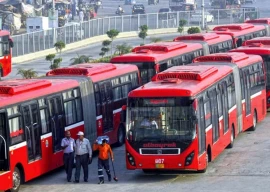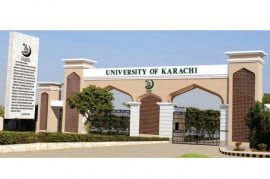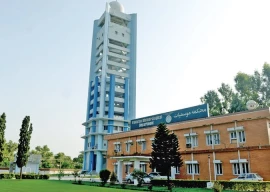
Another significant flaw in the negotiating strategy is that the TTP is not a monolithic body. Fazlullah is an outsider living in the Nuristan province of Afghanistan and most likely will not be accepted by the Mehsud tribe which dominates the TTP. Internal conflict is sure to follow between the various groups within the TTP leading to further disarray amongst the assortment of groups. Also, these factions are united in their goal to establish a barbaric version of a religion-based caliphate in violation of the Pakistani state and its Constitution. To agree to those extreme terms is tantamount to waving a big, white surrender flag. In its defence, the government has defined its own preconditions for negotiations which include the Taliban recognising the Constitution of Pakistan and putting down their weapons. The TTP were quick to respond that if they were willing to put down their arms and accept the Constitution, then there would be no need for dialogue. They followed up with demands including a complete withdrawal of the military from the tribal areas.
Politicians, including Imran Khan, continue to state that military operations have not achieved much. Neglecting facts and making statements like these is not just misleading. These claims are actually harmful to those who have risked life and limb to reopen the Indus Highway, unblock the Kohat tunnel and clear out the Mohmand Agency. If it wasn’t for Pakistan’s military forces, Bajaur would still be governed by the TTP and the network of 156 caves linked to Afghanistan would still be intact, Dir would remain a militant stronghold, Orakzai would have no functioning government, and Mangal Bagh would continue his control of Khyber. All major airlines had halted service to the Peshawar airport due to rocket attacks. The city of Tank used to be known as Taliban Town, Shariah was imposed in Malakand, Buner was overrun, the motorway was interdicted and Islamabad was in range. Throughout these struggles, deals were made and repeatedly violated. Research the Shakai Agreement, the Sararogha Treaty, the Malakand agreement, etc. to see for yourselves. It wasn’t until hard military operations began in 2007 that these areas were cleared.
Pakistani politicians are not showing the will or desire to take on the Taliban. Extremists will not respect or adhere to a timid approach; similarly, the superior courts need to demonstrate the will and resolve to prosecute terrorists. The only dialogue which needs to take place is a recital of the Constitution to these brutes. The Constitution outlines a governing structure and if any person refuses to abide by it, they must face legal consequences.
Published in The Express Tribune, November 18th, 2013.
Like Opinion & Editorial on Facebook, follow @ETOpEd on Twitter to receive all updates on all our daily pieces.
COMMENTS (23)
Comments are moderated and generally will be posted if they are on-topic and not abusive.
For more information, please see our Comments FAQ




1723621875-0/kylie-(1)1723621875-0-165x106.webp)










1725096749-0/Untitled-design-(1)1725096749-0-270x192.webp)



@numbersnumbers: {Please note that any use of “superior courts” (or any civilian courts for that matter) cannot reliably succeed in prosecuting and sentencing TTP/ Militant types because of fear of retribution by TTP} The other reason for failure is the strict standards for evidence / legal procedure / witness etc as per normal practice. However those fighting against the state and in open murderous rebellion don't deserve the full protection of law especially since they don't believe in any type of present courts to begin with. Even USA the supposed torchbearer of democracy and human rights could not afford to go through normal prosecuting channels for most of the Al Qaeda suspects and had to invent Guantanabay. And similarly INDIA had to formulate special laws such as TADA to deal with its perceived enemies of state. Unless and until we do something similar, there will be no effective deterrence. In our case its a double whammy. If by a remote chance (say 5%), you actually get convicted and sentenced, you can always look forward to jail breaks.
@Eddied: @Pushtun Voice: And who if I may ask are 'WE'? One needs more than one and the courage to achieve peace. Blowing into the wind is of no use; the fact is that the Talibans are going nowhere an are tere to stay. The foreigners will sooner or later leave, as the Russians and the Brits before them.
Have a nice day, Sirs!
Rex Minor
An excellent piece, full of compelling reason. We have already tested both the models of dealing with Taliban and its new leader. We know by experience what happens when Taliban are allowed to rule under a peace agreement between government and Maulvi Fazalullah, and we have also seen the result of army action in Swat. Even the blind can tell which model has produced better results. Then why is so much confusion. Whenever force has been used against the bruits the results have been good for the people, as the author has argued. There is no doubt that the army can show a repeat performance. The weakness is not in the army's capacity to deliver, it is in the political leadership's capacity to decide. Probably, the political leadership of both PPP and PMLN are afraid to use armed forces for political reasons. Who cares for the national interest!
Many of these missives sound like hate speech to me, although I think the Government cannot improve upon free speech, and I would always allow it..
The author is spot-on. We need to send in the army and kill anyone who is seen carrying a gun. Once they realize who the boss is they will cool down as they always have been. I am a Pushtun, believe me I know them better than the idiots screaming about drones in Punjab!
Congratulations to the author on this very well written article!...she is absolutely correct that the politicians do not have the courage to take on the TTP/ Taliban and the result of that indecision will be continuing carnage across the country....confused politicians like IK are so afraid of TTP he has struck deals with JI and other Taliban sympathizers who are traitors to Pakistan and actually working for the enemy...tough times ahead for citizens unless the leaders change their direction and start eliminating the murderers hiding behind twisted version of religion...
It's only when Punjab changes its mind set that we can come out of confusion, because Punjab voters support PML N, PTI, JI, and Secterian parties which are cuases of the problem. Punjab should take a leading role in denouncing these barbarians.
It's a bit more complicated than that. If you suggest that the Constitution be read to the TTP, that would prove to be a problem because you would first have to read it to the other side and then it may just emerge that they both have the same interpretation while you and I may think otherwise.......but then we don't matter, do we ?
The effective steps to combatting terrorism are these. In the National Assembly, repeal the application of the FCR and declare that the Constitution will apply as it does in the rest of Pakistan. Convert the territory into a province/s and set up administration identical to other provinces. Once this is done, a provincial assembly will follow along with a provincial administration. The stage is set for law enforcement by Police, Rangers and if required, the armed forces. Talk of any other way is a waste of time. Declaring FATA as a province does not require negotiations or permissions. The residents of FATA want desperately to become a province. Who is denying this fundamental right to be governed as the rest of Pakistan?
@Shahbaz Asif Tahir: the only nonsense is the belief that negotiations with savages will lead anywhere. But then again, a peaceful society with equal rights for all and based upon the rule of law is probably not a goal you share.
Miss khan writes unusualy well, is resolute and confident in her views and most of all gives the impression that she understands the likely reaction of the so called Talibans. Half of her narrative explains what she sees as the ground realities as well as the likely and the logical response from the TTP leadership. She is also bright enough to know that the Talibans do not negotiate with foreigners nor surrender to any force; this is their history and any one with the knowledge of the Hindukush mountain range should know that this is a cemetry, the resting place for the warriors of the dying Empires. Neither the American unmanned drones nor the artillery pieces of the Pakistan army have weakened the resolve of the Pashtun tribesmen but instead have compelled them to expand their area of operations beyond their borders and notably in the populated cities. Is appeasement a great prize for the peace?
Rex Minor
Will someone also recite the constitution to the army which is responsible for enforced disappearances not to mention repeatedly dismissed civilian overnment's and continues to control foreign policy and se Curtis policy even during civilian rules.
"The only dialogue which needs to take place is a recital of the Constitution to these brutes." a lot of naivety on display...if life was only this simple.
Please note that any use of "superior courts" (or any civilian courts for that matter) cannot reliably succeed in prosecuting and sentencing TTP/Militant types because of fear of retribution by TTP against court officers/judges, police officials and witnesses!! Once again, any trials of TTP (terrorist) types should be held in military courts (in secure military bases), and sentences served in SECURE military prisons!! Treason against the State should be the primary charge, and execution a preferred sentence!
Don't get me wrong for a moment, the respect I have for those soldiers fighting these barbarians is far greater than anyone could imagine. However, considering the counter - argument is vital and must be stated: that is the Army's job, and yes they have done it effectively, contrary to IK's beliefs, but it their job nonetheless, it should not be used to overshadow the various other shortfalls within the army. I urge the author, for she has more knowledge about this, to think whether the Generals are really doing their job as truthfully and whole - heartedly as they can. it is no secret that they have made vast amounts of money, moreover the we've all heard the rumor - corruption in the top brass is almost sanctioned by the chief. My point is, look at both sides of the argument, put away your bias towards the institution. Look closely into your father's dealings as well.
Baffling that any Pakistani politician has the nerve to pursue a treaty with the Taliban after the catastrophe that happened in Swat. It was only a couple years ago! More people need to come out against this errant approach. If we've learned anything over the past few years, it's that pure force is the most effective weapon against these religious zealots. See the MANY examples pointed out by the author.
Secular liberal nonsense.
Yes, quite agree. Pakistan's constitution should be recited to 'these brutes'. Perhaps, for the sake of avoiding hypocrisy, it should also be recited to our Generals who have also treated it as merely a piece of paper for many decades ( for present times, just see what is happening in Balochistan for instance - the rule of Army officers disguised as democracy).
those political parties whose support base lies in the right, far right/ extreme right minds (and Punjab is full of such people. ) can neither afford to condemn nor be willing to take Taliban/ TTP head on. Vote politics has got priority over the national interest. Days are not far when sharia is going to be implemented in Pakistan.
For now Pakistan is in maatam for the death of No.1 enemy of the state.Will take a few months to come out of it.And soldiers don't lay down their lives for ungrateful nations.